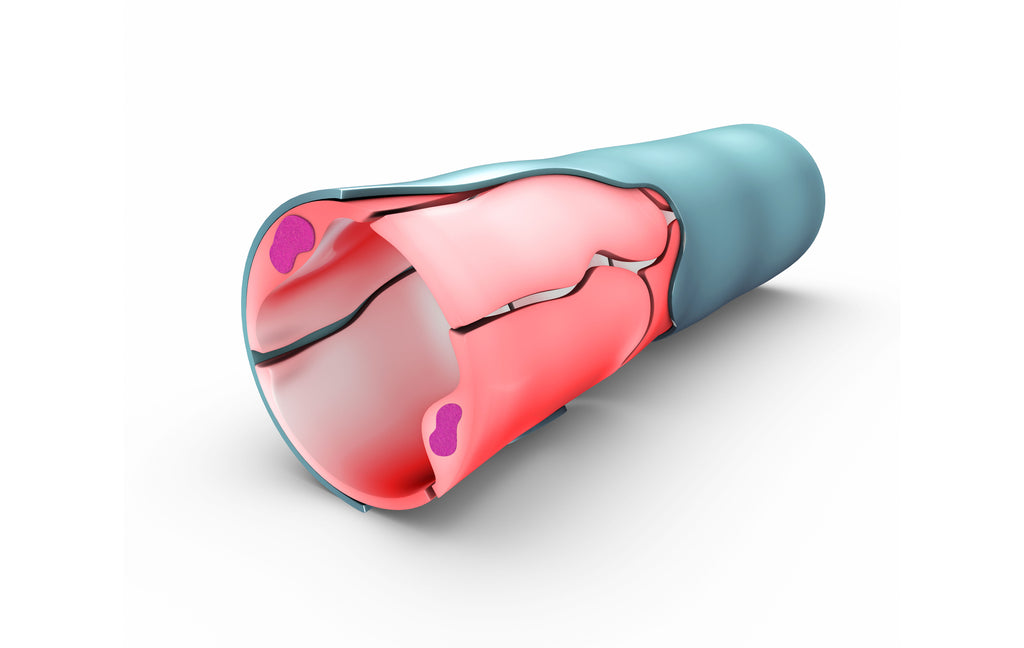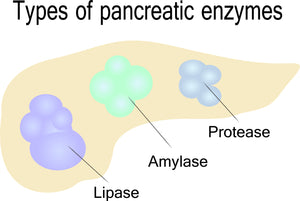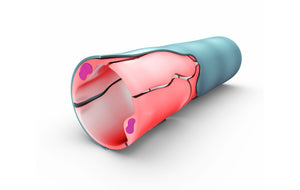Circulation Is Just As Important As Blood Sugar In Diabetes

If you have diabetes, you are likely very aware of the fact that you must control your blood sugar. Probably the first thing your doctor explained is the interaction of insulin and blood sugar. In people with diabetes, the body’s ability to produce or respond to insulin is impaired. Both type 1 and type 2 diabetes impact your body's ability to produce insulin, which in turn means you can’t regulate blood sugar effectively without help. Type 1 diabetes, is an autoimmune disorder where the body’s immune system attacks and destroys the insulin-producing beta cells in the pancreas. As a result, the body is unable to produce sufficient amounts of insulin. This type of diabetes is often diagnosed in children and young adults, although it can appear at any age. Type 2 diabetes is the most common form of diabetes and occurs when the body becomes resistant to insulin or doesn’t make enough insulin. In the early stages, the pancreas makes extra insulin to compensate. But over time, it isn’t able to keep up and can’t make enough insulin to keep blood glucose levels normal. Without enough insulin, glucose stays in your bloodstream and doesn’t reach your cells. Over time, having too much glucose in your blood can cause health problems.
If you are already controlling your blood sugar through diet and perhaps shots of insulin, good for you! Diabetes is not curable, but it is controllable if you follow a diet with lots of fiber that is balanced and low in sugars- particularly those that will spike blood sugar. Some people also try to lower blood sugar through supplementation of certain mushrooms like Cordyceps, Reishi, or a blend of mushrooms. Why mushrooms? There is a certain amount of research that supports the notion that some mushrooms may be able to lower blood sugars. Cordyceps has been studied for this since it’s been used to treat kidney troubles in traditional medicine. Aside from the possibility that certain mushrooms can lower blood sugars, it’s their support for the circulatory system and the immune system that could also be important- especially for those with Chronic Kidney Disease. Since CKD affects the whole body, it’s obvious how supporting immune function could help. What about the circulatory system? Why is that so important for those with diabetes or other kidney problems?
Blood flow is crucial for kidney function. The kidneys filter about a half cup of blood every minute, removing wastes and extra water to make urine. Blood flows into your kidney through the renal artery. This large blood vessel branches into smaller ones until the blood reaches the nephrons. In the nephron, your blood is filtered by the tiny blood vessels of the glomeruli and then flows out of your kidney through the renal vein. This means that your circulatory system needs to function very well for your kidneys to work properly. Both blood sugar control and maintaining healthy circulation are important aspects of overall health. They are interconnected in many ways and both play crucial roles in preventing disease and promoting wellness. Therefore, it’s not about which one is more important but rather how these two can be managed together for optimal health.
Having kidney disease can directly affect your chances of developing heart disease. Having heart disease can directly affect your chances of developing kidney disease.
High blood pressure can damage the blood vessels in and leading to the kidneys. Kidneys filter excess fluid and waste from the blood — a process that requires healthy blood vessels. Having diabetes in addition to high blood pressure can worsen the damage. Kidney problems caused by high blood pressure include kidney scarring (glomerulosclerosis). Kidney disease can cause fluid and salts in the blood to build up. Edema linked to kidney disease usually occurs in the legs and around the eyes. Damage to the tiny, filtering blood vessels in the kidneys can result in nephrotic syndrome. Circulation issues can have a significant impact on kidney health by damaging the blood vessels that are essential for kidney function. This can lead to a range of kidney problems, including kidney scarring and nephrotic syndrome.
It’s not just that one condition can lead to the other- it’s that many people have already developed both heart and kidney conditions. You have to manage your circulation as well as blood sugar. Another group that should be concerned are those that are already labeled pre-diabetic. If you are pre-diabetic, you are also likely to have pre-heart failure. If you are in the risk group for developing heart failure, then you are also at risk for developing diabetes and other kidney conditions. Even if you just have conditions that are risk factors for either, you are at risk of both. High blood pressure, circulatory and heart issues and kidney trouble eventually go hand in hand.
So what can you do about it? If you already have a heart condition and kidney damage, you are likely being managed by a specialist, take insulin, and blood pressure medications such as beta blockers. You might even be on dialysis. If you’re not there yet and want to try and avoid that fate, consider altering your lifestyle, diet, and try natural approaches to help manage your risks. The following might all help:
- Lose weight- If you are overweight, you are risk for both heart disease and diabetes independently, and remember, they reinforce each other.
- Exercise regularly- Even if you are somewhat trim, regular exercise is heart-healthy, helps you digest more completely, and helps clear blood sugar by raising your metabolism.
- Change your diet- Avoid too much protein and fat, avoid all or most sugars and simple carbohydrates, eat a varied diet with lots of vegetables, less fruit, and complex carbohydrates. Stay hydrated. Avoid “diet foods” with artificial sweeteners. We’re learning that these substances may only trick the body so far and may incur many of the same penalties that sugar consumption does.
- Avoid all tobacco and if you drink, do so moderately. Tobacco can cause many impacts to the heart and circulatory system, and drinking to excess can affect the same as well as being hard on the kidneys.
- Control your blood pressure- this is hard on the vessels in the body, including those in the kidneys, and makes the heart work harder. If your blood pressure is already quite high for your age, it makes sense to control it. You may have no recourse but a prescription drug if it’s high enough, but you could try natural means first.
- Support your circulatory system naturally. One natural substance that has shown promise is an extract from Citrus Sinensis (Sweet Orange). Citrus sinensis is a rich source of citrus bioflavonoids. These bioflavonoids have been used to support healthy blood vessels and veins. They promote antioxidant defenses and a balanced inflammatory response, which can be beneficial for circulation and blood flow. A specific polymethoxylated flavone in Citrus sinensis called nobiletin has been found to positively influence AMPK, Nrf2, and NQO1 pathways. These pathways play important roles in protecting cells and mitochondria while upregulating NAD+ and ATP production. Nobiletin also supports the gut microbiome. In fact, this NIH review of the study literature concluded that citrus sinensis extracts taken as supplements had positive effects on both cardiac and metabolic health.
Your circulatory, cardiac, metabolic, and kidney functions are all intertwined. If you’ve already started worrying about your blood sugar, it’s time to do the same for your circulatory health.
- Robert Thomas







Comments 0